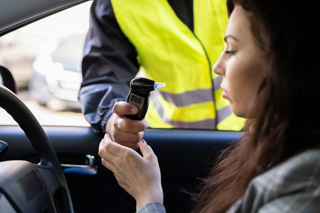The Government should incentivise the uptake of autonomous vehicle technology in the same way it subsidises ultra-low emission vehicles, delegates at the Institute of Car Fleet Management’s (ICFM) annual conference were told.
During a debate on autonomous vehicles, their future impact on legislation and fleet policy, BVRLA chief executive Gerry Keaney said it was important this technology was installed in as many cars as possible.
“Most of the technology is available today, but the big push, which I think the Government should be supporting, is to get it into more cars so people can really get to see its benefits and see that this is not some 2050 potential solution, but is available today,” he said.
“The Government has got a chance to really put some impetus behind this and support the installation of this technology. I believe it should take a look at what it did with low emission vehicles. It created the Office of Low Emission Vehicles and said to the consumer that ‘we believe low CO2 emissions are so important that we will give you a discount on that car or van’, and that is starting to encourage the uptake of low emission vehicles.
“I believe – and this is my personal view – that you should go to the Government and say ‘we believe that a safety feature such as autonomous braking can make such a big difference in terms of societal costs and practical business savings that you should give support – perhaps £300 or £400 – to the installation of that technology in every car’.”
Keaney said BVRLA members, who register more than one million new vehicles a year, could “move very quickly in terms of putting a lot of this technology on the ground” if
this happened.
The Government currently offers up to £5,000 towards electric cars and £8,000 towards electric vans under its plug-in grant scheme.
Speakers at the debate also told delegates the introduction of autonomous cars would have a wide-ranging impact on the fleet industry.
This will be reflected by driving tests and licensing,
said Paul Baldock, strategic and operational planning manager and fleet manager of the Driver and Vehicle Standards Agency.
“I don’t think it will happen soon because the licence acquisition process has to match the majority of vehicles that are out there, but I think there may be extra categories for autonomous vehicles,” he said. “There will be a lot of research into what the new test would look like, but to my knowledge that research is in its infancy.”
Dr Nick Reed, principal human factors researcher at Transport Research Laboratory, told delegates automated vehicles will also affect how vehicles are insured.
“You are likely to have a very detailed and accurate audit trail of what happened in the event of a collision, so all that debate and confusion that exists when insurance companies argue about liability goes away because the data can give you that audit trail. A fully automated vehicle will also come under a product liability insurance model rather than a motor insurance policy.”






















Login to comment
Comments
No comments have been made yet.